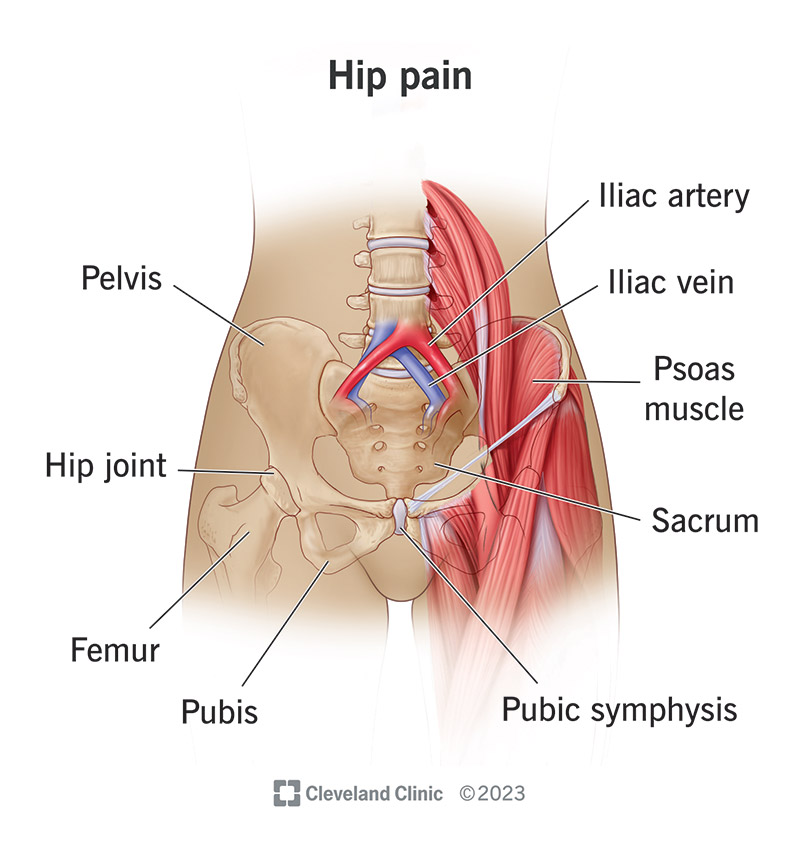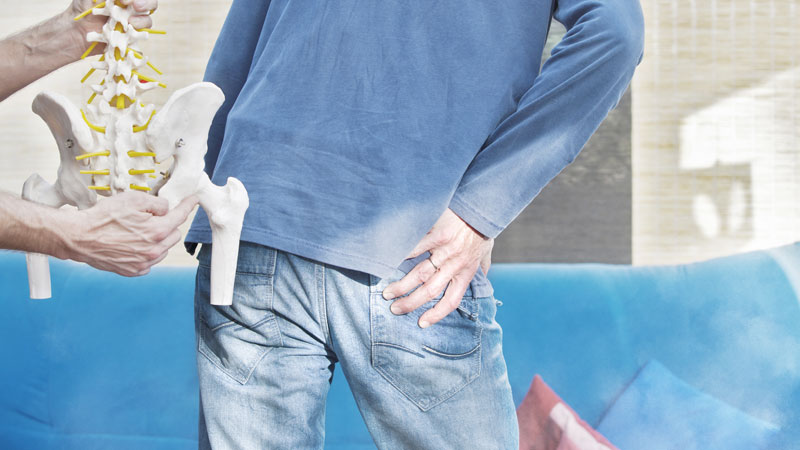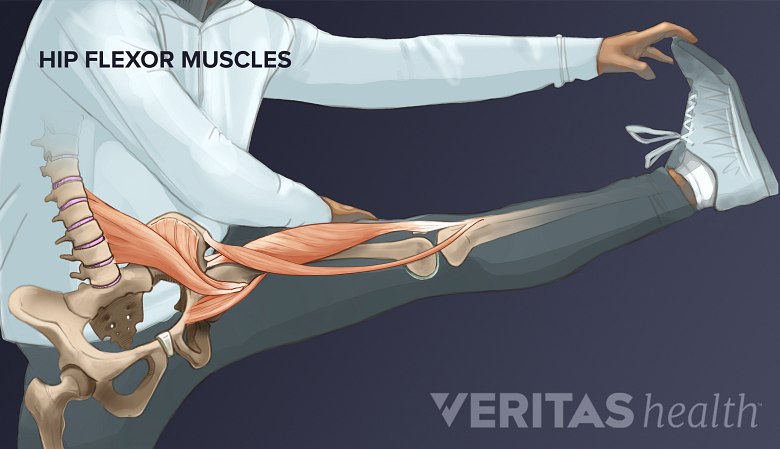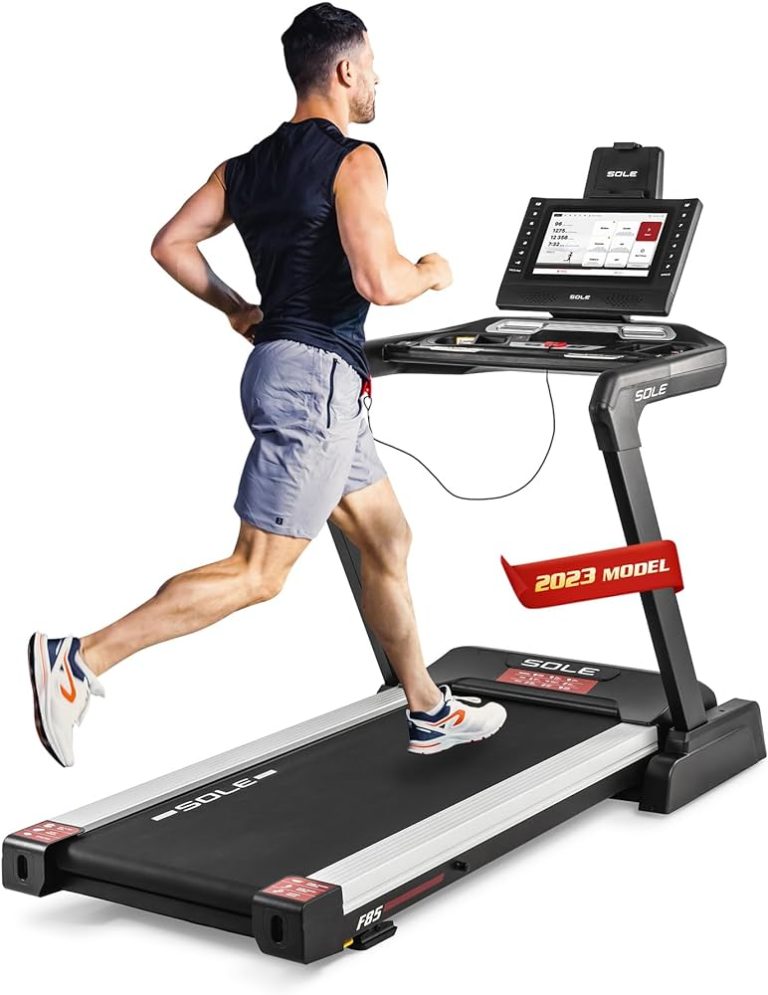Why Does Walking Hurt My Hips : Understanding the Pain
Walking may hurt your hips due to overuse, poor alignment, injury, or underlying conditions. To pinpoint the exact cause, it’s crucial to listen to your body, seek medical evaluation, and consider factors like footwear, terrain, and pace.
Hip pain while walking can impact your daily activities, limit your mobility, and affect your overall quality of life. Understanding why walking causes hip pain is key to finding relief and preventing further discomfort. By addressing the root issue and making necessary adjustments, you can improve your hip health and enjoy pain-free walks.
Let’s explore the common reasons why walking may hurt your hips and how you can address this issue effectively.

Credit: my.clevelandclinic.org
Possible Causes Of Hip Pain While Walking
Experiencing hip pain while walking can be a frustrating and uncomfortable issue that can hinder your daily activities. Many different factors can contribute to this problem. In this section, we will explore three potential causes of hip pain while walking: arthritis, bursitis, and muscle imbalances. Understanding these possible causes can help you identify the source of your discomfort and take the appropriate steps towards finding relief.
Arthritis
Arthritis, a common cause of hip pain, affects millions of people worldwide. Specifically, two types of arthritis can impact the hips: osteoarthritis and rheumatoid arthritis.
Osteoarthritis:
In osteoarthritis, the cartilage in the hip joint gradually wears down over time. This can lead to bone rubbing against bone, causing pain and stiffness. Factors such as aging, previous injuries, genetics, and obesity can increase the risk of developing osteoarthritis.
Rheumatoid Arthritis:
Rheumatoid arthritis, on the other hand, is an autoimmune disease characterized by inflammation of the joints. When the hip joints are affected, pain and discomfort can occur while walking. This condition is caused by the immune system attacking healthy tissues, resulting in joint damage over time.
Bursitis
Bursitis is another potential cause of hip pain while walking. Bursae are small, fluid-filled sacs that cushion the bones, tendons, and muscles near your joints. When these sacs become inflamed, bursitis occurs. The trochanteric bursa, located on the outside of the hip, is commonly affected and can lead to hip pain during walking.
Muscle Imbalances
Muscle imbalances occur when certain muscles are stronger or tighter than others, causing an imbalance in the hip joint’s stability. The hip joint relies on the coordinated effort of multiple muscles to function properly. When certain muscles are overworked or weakened, it can lead to discomfort during walking. Common imbalances involve the hip flexors, gluteal muscles, and core muscles.
Addressing these muscle imbalances through targeted exercises and stretches can help alleviate hip pain while walking and improve overall hip joint stability.
To sum up, arthritis, bursitis, and muscle imbalances are three potential causes of hip pain while walking. By understanding these underlying factors, you can take the necessary steps towards finding relief and maintaining a pain-free walking routine.

Credit: www.health.harvard.edu
Injury-related Causes
The hips are vital for movement, and experiencing pain in this area can greatly impact your daily activities. Injuries are a common cause of hip pain, leading to discomfort and limited mobility.
Hip Fracture
A hip fracture is a serious injury that can result from a fall or direct trauma to the hip. Severe pain, swelling, and difficulty bearing weight are common symptoms of a hip fracture.
Strains And Sprains
Muscle strains and ligament sprains in the hip can occur due to overuse or sudden movements. These injuries often cause sharp pain and limited range of motion.
Biomechanical Factors
When it comes to understanding why walking might cause hip pain, it’s essential to consider the biomechanical factors at play. Various issues related to alignment, muscle strength, and movement patterns can impact the hips, leading to discomfort and pain.
Misalignment And Imbalance
Misalignment of the hip joints can put excessive pressure on certain areas, leading to discomfort during walking. Additionally, an imbalance in the pelvic region can cause the hips to bear uneven weight, leading to pain and strain.
Weak Muscles
Weak muscles in the hip complex can contribute to pain and discomfort during walking, as they are unable to adequately support and stabilize the hip joints. This can lead to increased stress on the surrounding tissues, resulting in pain and potential injury.
Medical Conditions
There are several medical conditions that can contribute to hip pain while walking. Understanding these conditions can help determine the underlying cause of your discomfort and guide you towards the appropriate treatment. Two common conditions known to cause hip pain are sciatca and hip impingement.
Sciatica
Sciatica occurs when the sciatic nerve becomes irritated or compressed. The sciatic nerve is the longest nerve in your body, running from your lower back down to your feet. When this nerve is affected, you may experience pain, tingling, or numbness that radiates from your lower back, through your hips, and down one or both legs.
There are several factors that can lead to sciatica, including herniated discs, spinal stenosis, or even bone spurs in the spine. These conditions can put pressure on the sciatic nerve, causing pain in the hips and legs while walking. It’s important to seek medical attention if you suspect you have sciatica, as proper diagnosis and treatment can help alleviate the discomfort and prevent future complications.
Hip Impingement
Hip impingement, also known as femoral acetabular impingement (FAI), is a condition where the bones of the hip joint rub against each other, causing pain and limited range of motion. This condition often occurs due to a deformity in the hip joint, where the ball and socket don’t fit properly.
The repetitive motion of walking can worsen hip impingement as the bones continue to grind against each other. This can lead to inflammation, cartilage damage, and ultimately, hip pain. It’s worth noting that hip impingement is a common cause of hip pain in younger individuals, especially athletes or those who engage in activities that involve repetitive hip movements like walking or running.
If you suspect you have hip impingement, it’s essential to consult with a healthcare professional. They can evaluate your condition, recommend appropriate treatments, and help you manage the pain while walking.

Credit: www.nm.org
Frequently Asked Questions On Why Does Walking Hurt My Hips
How Can I Avoid Hip Pain When Walking?
To avoid hip pain when walking, follow these tips: maintain good posture, engage in low-impact exercises to strengthen the hips, wear supportive shoes, use proper walking techniques, and gradually increase walking distance and intensity.
What Does Hip Arthritis Feel Like?
Hip arthritis can feel like pain, stiffness, and swelling in the hip joint. It may result in decreased range of motion and difficulty with daily activities.
How Do I Get My Hips To Stop Hurting?
To relieve hip pain, try stretching, strengthening, and low-impact exercises. Applying heat or cold packs, and taking over-the-counter pain relievers can also help. If pain persists, consult a healthcare professional for proper diagnosis and treatment.
Why Does My Pelvic Joint Hurt When I Walk?
Your pelvic joint may hurt when walking due to problems with the hip or SI joint, muscle imbalances, or overuse. It’s important to seek medical evaluation for an accurate diagnosis and proper treatment. Engaging in activities like physical therapy or strengthening exercises may help alleviate the discomfort.
Conclusion
If you’re experiencing hip pain while walking, it could be due to several factors. Consult a healthcare provider for proper diagnosis and treatment. Stay active with low-impact exercises to keep your hips healthy. Remember, taking care of your hip health is crucial for overall well-being.







